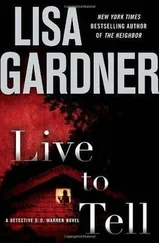“Some robbery,” D.D. stated, voice challenging.
“Not a robbery,” Tessa immediately concurred. “You’re right. The smart phones, purse, wallet. Those would be the first items taken, not left behind.”
Tessa wondered if the family had been conscious during this phase. Most likely. Tasering was intensely painful, but only briefly incapacitating. The moment the shooter squeezed the trigger, an electric current screamed through the victim’s body, firing each nerve ending to intense, excruciating life. The second the trigger was released, however, the current ceased and the pain passed, leaving the subject shaken, but standing.
Most police officers preferred Tasering to pepper spray for just that reason. Pepper spray reduced the subject to a giant, blubbering, mucousy mess, which the officer then had to awkwardly heave into the back of the squad car. Tasering, on the other hand, generally involved two to three quick bursts of searing electrical charge, at which point most perpetrators tucked themselves obediently inside the squad car, anything not to be Tasered again.
So most likely the family was conscious. Restrained, subdued, while the perpetrator ransacked their pockets, rifled through their personal possessions, then placed everything neatly on the kitchen island. The parents, at the very least, must have realized the full implications.
That this was no robbery.
That by definition, therefore, the attack was something more personal. Something worse.
“Since you’re doing a nice job of looking, not touching,” D.D. said, “I’ll let you in on a little secret.”
Tessa waited. D.D. pointed to the pile.
“Beneath all those electronics, we found the family’s jewelry. Engagement ring, wedding bands, diamond studs, gold hoops, two necklaces, a Rolex. My highly conservative estimate: at least a hundred grand in easy-to-pawn items.”
“Shit.” Tessa couldn’t help herself.
“Yep. Some robbery.”
“All right. Talk to me about the security system.”
“Electronically operated. Denbe’s firm has built a number of prisons, and he incorporated a system into his own home similar to what they use for jail cells. Doors all have multiple steel bolts, which are controlled by a master panel. Punch in one code, the system automatically locks down all means of entry and exit. Punch in a second code, the system automatically disarms, unlocking all egresses. I guess there’s other codes, specifying unlocking just inner door A or outer door B, but given this system probably costs more than my entire house, I’m hardly an expert. Of course, the windows and doors are also hardwired to the security system, which would automatically contact the security company while blasting an alarm if someone tried to manually break down a door.”
“And the system was disarmed when the housekeeper showed up at five thirty?”
“Correct. Which is highly unusual. Justin Denbe required the house to be locked at all times, whether anyone was home or not.”
“City life one-oh-one,” Tessa commented dryly. She went with the logical assumption. “Who knows the codes?”
“Family, housekeeper and the security company.”
“How often are the codes changed?”
“Once a month.”
“Can it be manually overridden? Wires cut, that sort of thing?”
“According to the security company, any tampering with the wires would activate the alarm. And there’s redundancy…two sets of wires, both fiber optics and cable. Hell, I didn’t understand it all, but Justin Denbe knows his shit, and applied it to his personal living situation. The security company can be contacted by first responders for emergency override—say, in the case of fire—but reported no such requests. Whoever gained access, they did it right.”
Tessa turned to look at the detective. “You said the housekeeper enters through the garage. How about the family?”
“When on foot, they use the front door, just as we did. When Libby is driving, she enters from the lower-level garage where she keeps her car. But according to the housekeeper, Justin and Libby had dinner plans for the evening. And in a his-and-her situation, he always drove.”
“But he doesn’t park in the garage?”
“Nope, single bay, which gallantly, I suppose, he gave to her. They also have a reserved parking space around back, but the housekeeper uses it. Guess he’s gone so much, he mostly keeps his car in the Denbe parking garage and limo’s it from there. Then, on the few days a week he’s back home, he takes his chances street side, like the rest of us schmucks.” D.D. rolled her eyes.
“And the girl, Ashlyn? Where was she?”
“Parents’ night out. She was staying in.”
Tessa processed this. “So the teenager is already home. Parents return. Enter through the front door… Attacker is already inside. Ambushes Justin and Libby in the foyer.”
“Attacker or attackers?”
“Attackers. One person can’t subdue an entire family with a Taser alone. And Justin worked in the field, yes? Hands-on, my boss said. Big guy, fit.”
“Big guy,” D.D. agreed. “Very fit.”
“So attackers. At least one or two in the entryway. Element of surprise for the parents. Which just leaves the girl.”
“If you were the kidnappers, who would you tend to first? Parents or child?”
“Child,” Tessa said immediately. “Moment you control the child, you control the parents.”
“Yep. Which is where our guys almost made their first mistake. Girl’s room is on the third floor. Come on, follow me.”
Chapter 5
MY FATHER DIED THE SAME WEEKEND as my eleventh birthday. To this day, when I think of him, I taste Duncan Hines yellow cake, topped with sugary buttercream frosting and rainbow sprinkles. I smell the melting wax of my twin number-one birthday candles, shoved side by side into the top of my lopsided round cake. I hear music, “Happy Birthday,” to be exact. A song I’ve never sung to my own family and never will.
Motorcycle accident, it turned out. My father wasn’t wearing a helmet.
Darwinism, my mother would mutter, but her blue eyes were always drawn, her expression deeply saddened. My first experience that you can both hate a man and miss him terribly.
Losing a parent isn’t a great financial proposition. Up until that point, my father’s job as an electrician and my mother’s part-time work at the corner dry cleaners had kept us solidly blue collar. Cute little apartment in a working-class area of Boston. A single used POS car for my mom, the weekend motorcycle for my dad. We bought our clothes from J.C. Penney, or if my mother was feeling frisky, T.J. Maxx. I never worried about food on the table, or the roof over my head. My friends in the neighborhood were also working class, and if I didn’t have much, well, at least I had as much as they did.
Unfortunately, the working-class lifestyle generally leaves households with just enough income to meet monthly obligations, while not quite enough to fund such luxuries as savings accounts or, better yet, life insurance.
After my father died, my mother and I lost seventy percent of our family’s income. Social Security kicked in some survivor’s benefits, but not enough to bridge that gap. My mom went from part-time work to full-time hours. When that wasn’t enough, she started a cleaning service on the side. I’d go with her, two nights a week, plus every weekend, perfecting my own vacuuming, dusting and washing skills as we scoured our way toward one more meal on the table.
Good-bye, cute little apartment. Hello, one-bedroom subsidized living unit in a vast, soulless building where gunfire was a nightly occurrence and the cockroaches outnumbered the human occupants a thousand to one. On Friday nights, my mother would light the gas stove and I’d stand by with the can of Raid. We’d take out two to three dozen roaches at a time, then watch Seinfeld on a tiny black-and-white TV to celebrate.
Читать дальше












